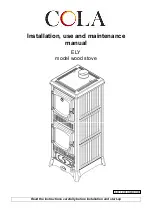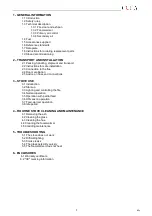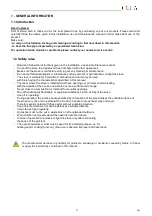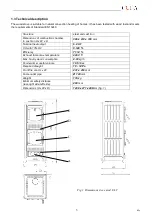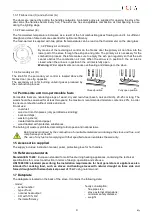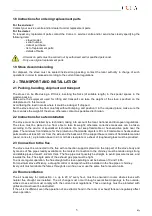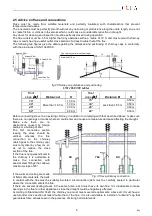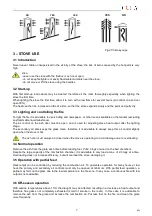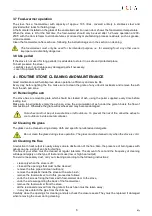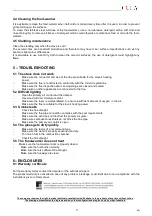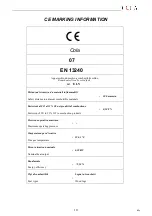
7
Ely
NO YES YES
YES NO
Fig.4 Chimney caps
3 – STOVE USE
3.1 Introduction
Never leave children unsupervised in the vicinity of the stove; the risk of burns caused by the hot parts is very
high.
Also:
-never use the stove with the firebox or ash door open;
-do not keep firelighters or easily flammable materials near the stove;
-do not move or lift the stove using the handles
.
3.2 Start-up
With first start-up, bad odours may be created, therefore air the room thoroughly especially when lighting the
stove the first time.
When lighting the stove the first time, allow it to burn with a low flame for several hours (air control on ash door
open 30%).
The heat can then be increased a little at a time, so that the stove expands slowly and the paint and putty dry.
3.3 Lighting and controlling the fire
To light the fire it is advisable to use kindling and newspaper, or other means available on the market (excluding
any flammable liquid substance).
The air control on the ash door must be open, and is used for adjusting stove heat output after the lighting
stage.
The secondary air also keeps the glass clean, therefore it is advisable to always keep this air control slightly
open when the stove is hot.
The ash door must always be closed when the stove is operating, to avoid damage due to overheating.
3.4 Normal operation
Remove the ash from the grate each time before loading fuel. Put 2-3 logs of wood on the bed of embers.
Despite the large capacity of the combustion chamber, it is advisable to only load a max. of 2-3 logs at a time.
Overloading does not increase efficiency, but will overheat the stove, damaging it.
3.5 Operation with partial feed
Heat output can be controlled by reducing the combustion air. To guarantee operation for many hours at low
heat, the primary and secondary air controls must only be opened at minimum. With partial feed operation, a
patina may form on the glass due to the low temperature in the fire zone. In any case, a continuous fire with low
output is not advisable.
3.6 Off-season operation
With outside temperatures above 15°C, the draught m ay be affected, resulting in a decrease in heat output and
therefore flue gases not completely exhausted (smell of smoke in the room). In this case it is advisable to
remove the ash from the grate and increase the combustion air. Put less fuel on the fire and clean the grate
more frequently.

